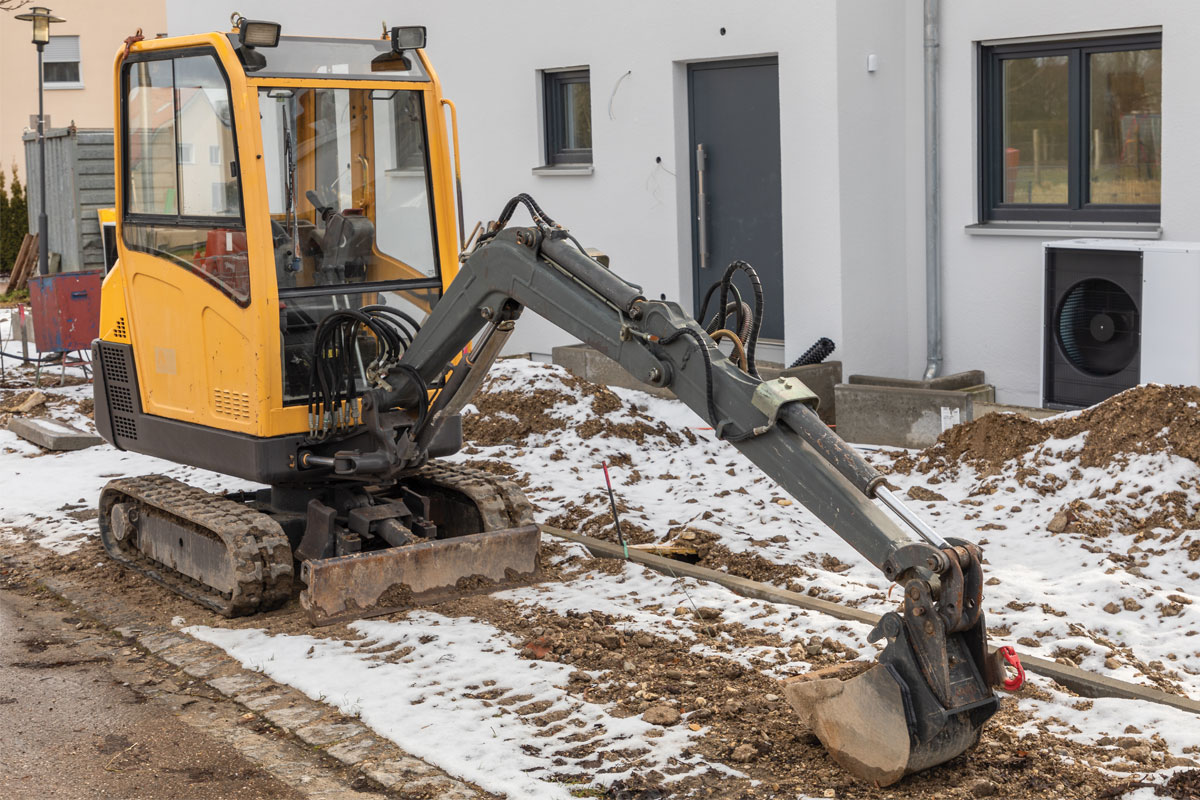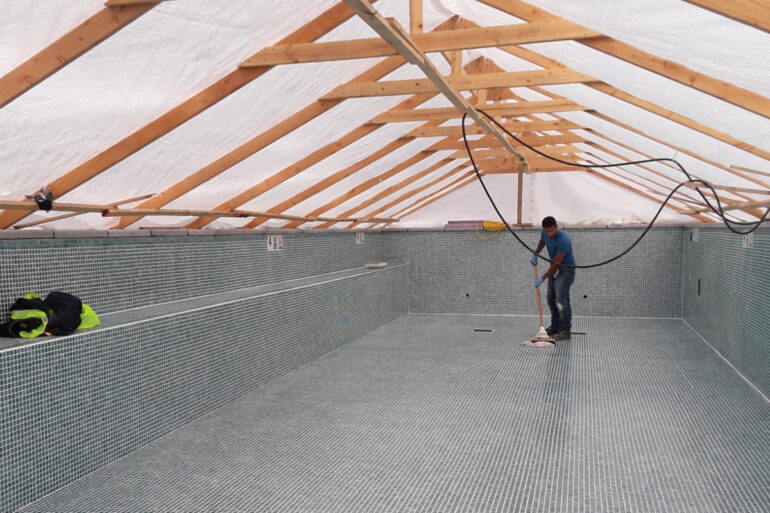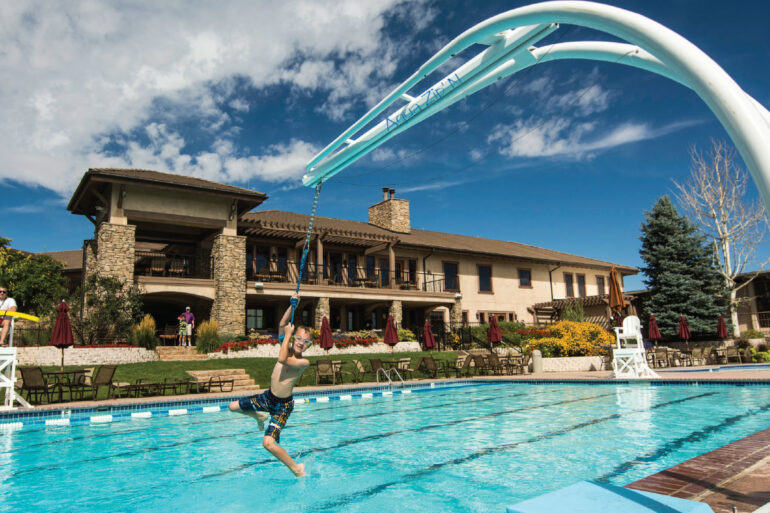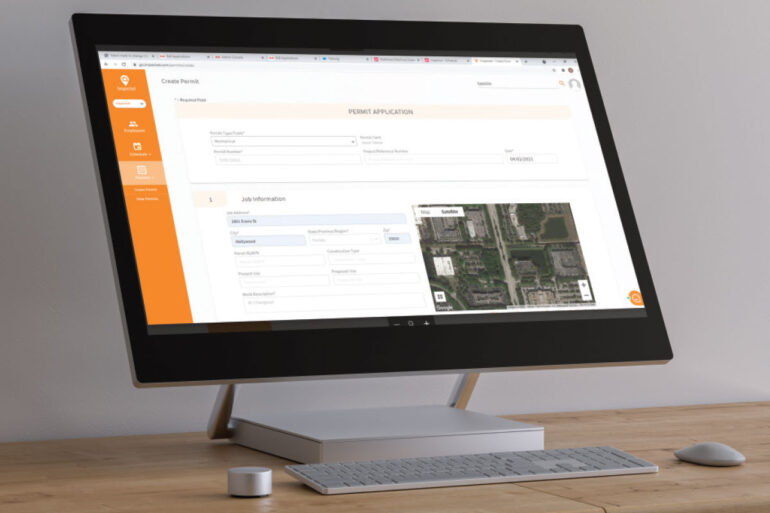Tips for Winter Pool Builders

Experts offer solutions for cold-climate challenges
As we approach 2024, a question arises in the industry: Should we build in-ground pools in cold-climate regions with harsh winters?
Many companies build year-round, but the pandemic demand for new pool construction inspired others to expand their seasonality limits. Trade shows are reflecting that interest. Dominick Mondi, executive director for the Northeast Spa & Pool Association, says the organization’s trade show “has seen more exhibitors come in that have products for that, whether it’s heaters, tents or something more in that lane.”
For contractors considering winter builds, we’ve asked several expert pool builders about cold-climate challenges and solutions they have found.
Choose the right project
“There are some criteria we have for what are good projects to do in the off-season,” says David Thompson, CEO of Swimming Pool Services, based in Waukesha, Wisconsin. “One is the site access. We prefer something that doesn’t have a big hill, in case we get snow. We prefer soil that’s not going to hold groundwater.”
Another is proximity to the company’s office, he says. “We try to keep [crews] as close to our office as possible, just because things happen in the winter. You send the crew out, and there are times we have to turn around and shut it down.”
Choose the right client
Clients need to understand the challenges and timeline of winter builds. Thompson says when they do winter construction, they typically provide clients with a finished project by early spring. “We’re going from what could be six weeks for a simple pool build to maybe even six months because we can’t do everything in the winter, or it’s very difficult without incurring huge costs.”
We’re going from what could be six weeks for a simple pool build to maybe even six months because we can’t do everything in the winter, or it’s very difficult without incurring huge costs.”
David Thompson, Swimming Pool Services
Lay the groundwork — literally
Once they’ve selected a client and site as good candidates, “We’ll go in before the ground freezes, and we’ll frost-protect it,” Thompson says. “All we’re going to do is add some insulation, and we use hay or frost blankets, just to keep the ground from freezing.”
Snow can even be a good insulator if it coats the ground before the weather gets especially cold, Thompson says.
Use the right equipment
Swimming Pool Services uses equipment during winter builds that might not be typical during the rest of the year. “Our excavator has heat in it — we don’t use it in the summer — but beyond that, if frost has gotten into the ground or we add a project to the schedule, you can get bigger equipment with a frost tooth, and that’ll rip the frost out in chunks,” Thompson says. “[However], we prefer not to do that because it makes it very difficult to shape the excavation for a pool.”
Tent (or don’t tent) the pool site
The use of tents in winter varies by company. “We look for weather where we can excavate; we excavate, then we put a [custom-made] tent up over the hole,” says Brian Miller, assistant vice president of Quality Swimming Pools in Columbus, Ohio. Then they plumb, form and set rebar under the tent and keep working until the pool is completed. This saves his company time, Miller says, because they don’t have to wait for spring to finish.
Although Thompson has used tents in the past, he relies more on the weather forecast to determine what projects to work on. “Most of the time we look at the extended forecast and pick spots in the weather where it isn’t going to snow a ton,” he says. “If we see a window, we go out and punch a hole, erect the basic structure, put in the plumbing lines and the utility runs, backfill them, then stop.” They start again when the weather begins to warm, then finish the job.
Be aware of winter road restrictions
Many states in the colder regions of the U.S. have weight restrictions for some city and county roads during the winter months. Charles Riley, the new owner of Custom Pools in Hopkins, Minnesota, says there are six weeks around March with weight limits on what you can drive into a property. “So, things like cement trucks, low boys that haul our excavators and our Bobcats, we can’t drive those on certain roads,” Riley says. “We’re always having to work around that.”
So, definitely yes — building an in-ground pool in winter is feasible. For pool contractors, there are seasonal challenges to address, but there are also solutions. And for their clients, there’s the satisfaction of swimming in their finished pool at the beginning of the season.






